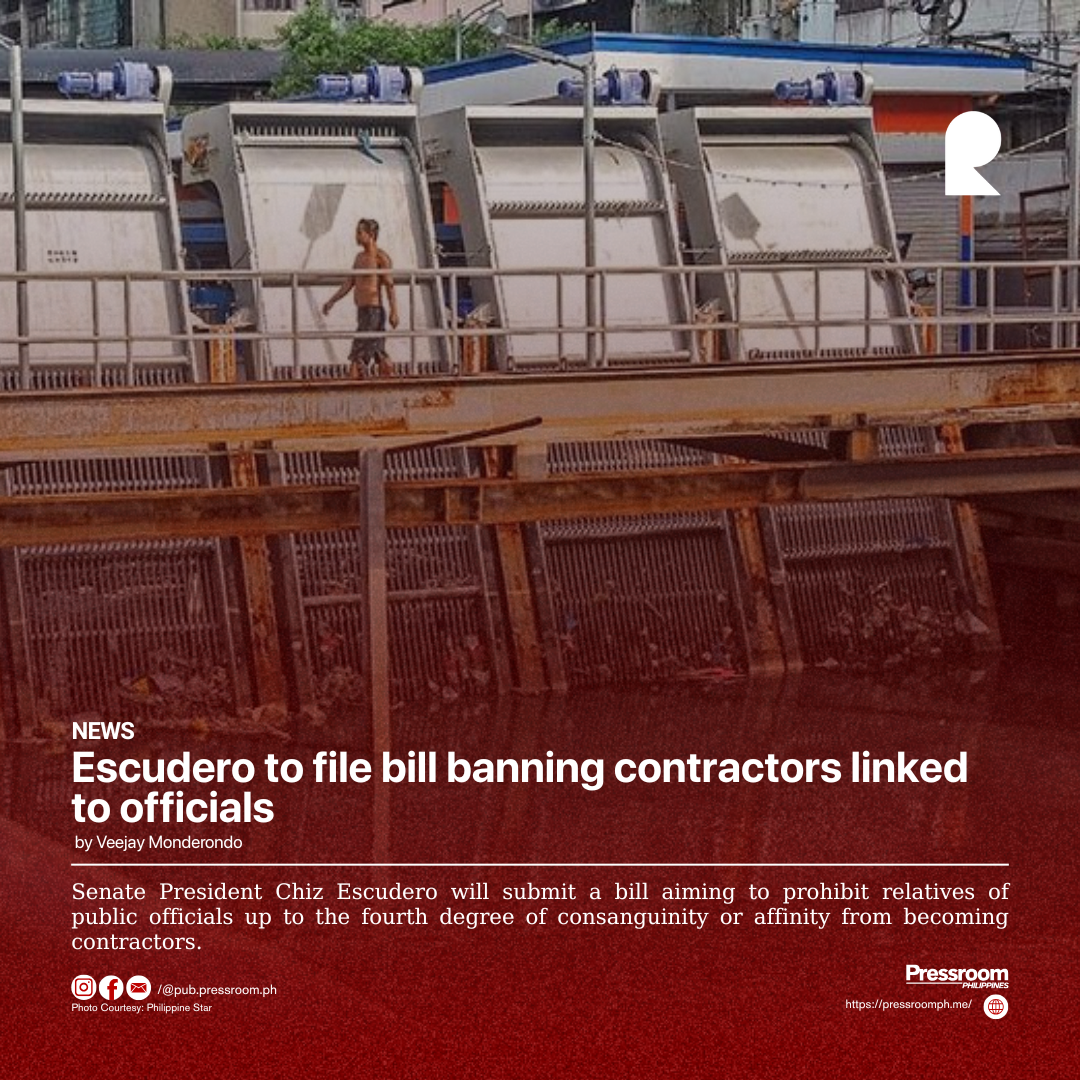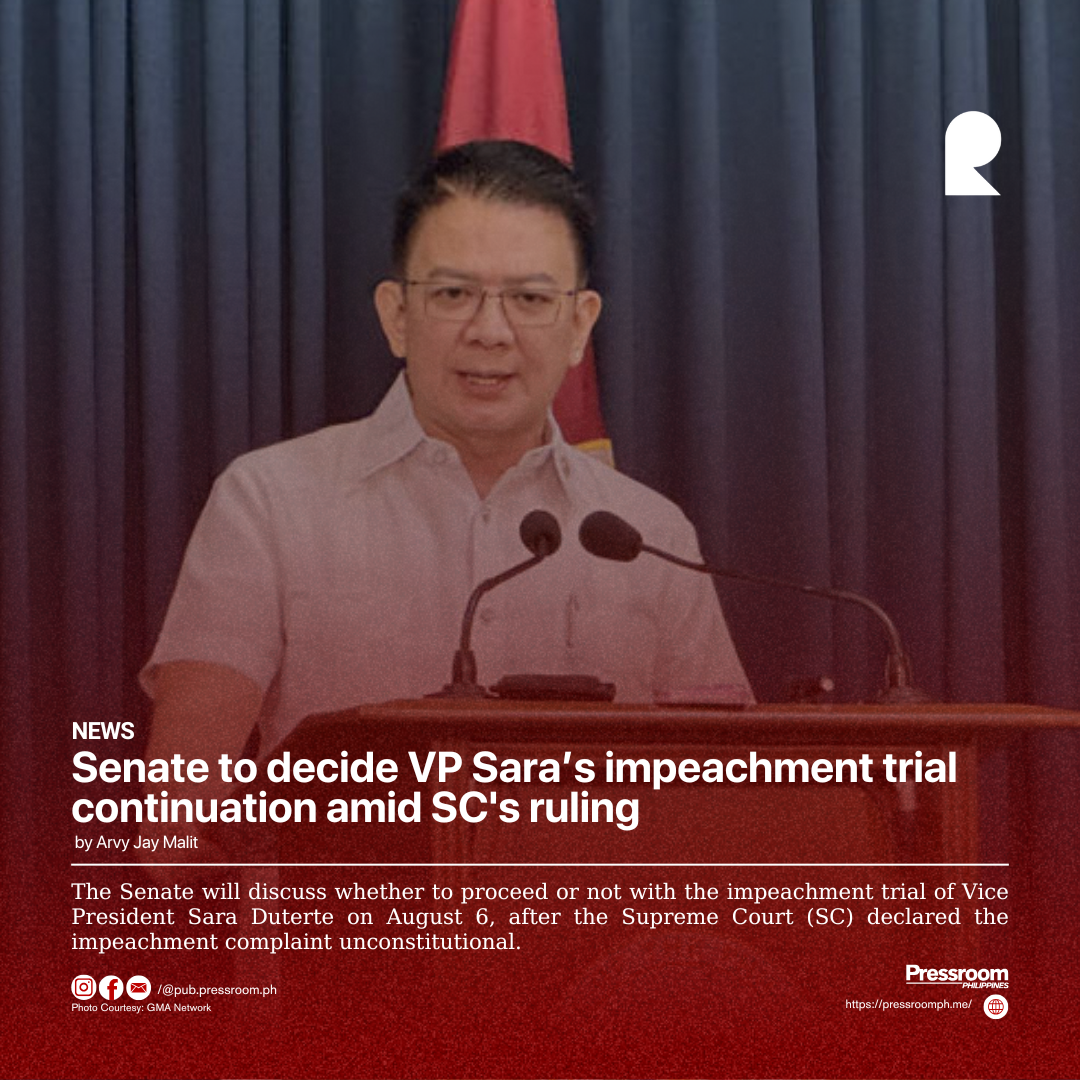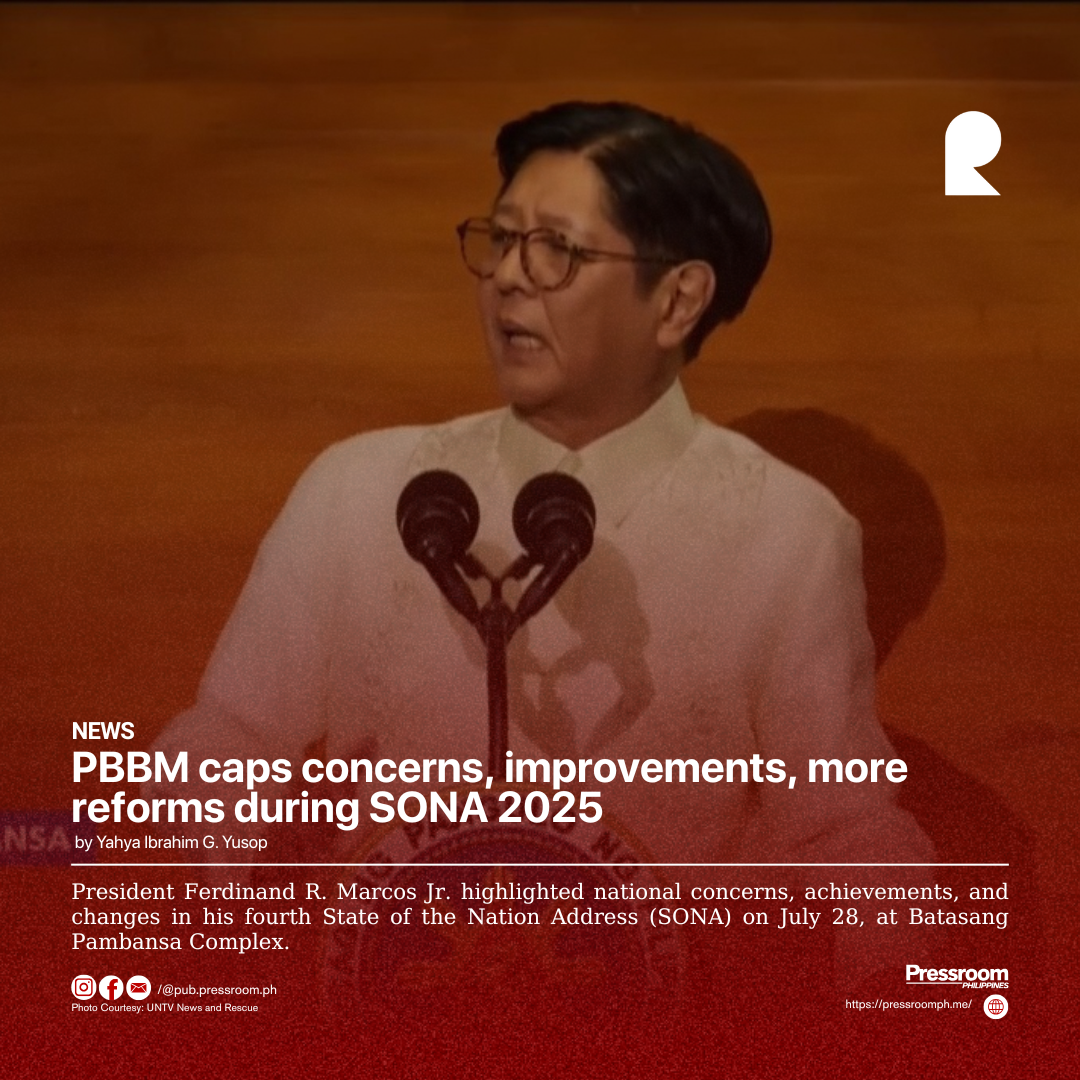The House of Representatives will file a motion for reconsideration on the impeachment of Vice President Sara Duterte after the Supreme Court struck it down, declaring it ‘unconstitutional’.
House of Representatives spokesperson Princess Abante said that while the chamber respects the high court’s decision, it is ‘deeply concerned’ that the ruling was based on ‘erroneous factual premises’ that contradict official house records.
She noted that the major point of dispute is the Supreme Court’s assertion that the impeachment complaint, filed on Feb. 5, 2025, was transmitted to the Senate without a plenary vote, which Abante disputed as ‘wrong’.
“Naninindigan ang Kamara na ang proseso ng impeachment ay naaayon at sumunod sa Konstitusyon at Jurisprudence gaya ng desisyon sa Francisco at Gutierrez. Sa madaling salita, ginawa ng Kamara ang lahat upang sundan ang mga alituntunin at prinsipyo ng ating Saligang Batas at mga naunang pasya ng Korte Suprema,” she said in a statement.
Citing the 2003 Francisco vs. House of Representatives case, Abante pointed out the filing of a verified complaint and its referral to the Committee on Justice is sufficient to initiate impeachment proceedings.
She also referred to the Gutierrez vs. House of Representatives Committee on Justice ruling in 2011, which stated that multiple impeachment complaints may be simultaneously referred to the Committee and would count as only one initiation.
According to Abante, this motion was approved in plenary and a panel of public prosecutors was immediately formed, as detailed in House Journal No. 36 and the official Record of the House of Representatives.
“The transmission to the Senate was not unilateral or ministerial—it was a clear result of plenary action,” Abante said.
The House also denied the high court’s assertion that it failed to act on the first three impeachment complaints filed in December 2024.
Abante explained that on the same day the February complaint was acted upon, the House also voted in plenary to archive the December complaints.
“On the same day the February complaint was acted upon, the House also voted in plenary to archive the three impeachment complaints filed in December,” Abante said in Filipino.
“This was done hours before the session was adjourned, as it confirmed that the February complaint was signed and verified by 1/3 of the House members,” she added.
Abante also criticized the high court’s conclusion that the complaints were neglected due to adjournment, calling it ‘clearly contrary to official record and documents submitted to the Supreme Court’.
On one-year bar rule, the spokesperson also pointed out the Supreme Court‘s conclusion, the February complaint violated the one-year bar and was based on a “factual and procedural inversion,” arguing the premise of the high court’s legal pronouncements was incorrect.
Abante noted the decision failed to include the plenary vote, misread the timeline of the House’s actions and gave more credence to a news article than the official House Journal and the reports were directly submitted to the high court.
“Mali ang pagbasa sa timeline ng mga kilos ng Kamara, at mas pinaniniwalaan ang isang news article kaysa sa House Journal at opisyal na report na isinumite mismo sa Korte,” Abante said.
“Nakababahala na ang desisyon ay hindi naman lang binanggit o tumugon sa mga dokumentong ito,” she added.
Abante pointed out that the SC ruling implies additional requirements for the impeachment complaints, including: (1) each signatory reading the complaint, (2) plenary vote after signatures, and (3) respondents opportunity to respond before transmission to Senate.
The House, however, argued that no such requirements exist in the Constitution or the House Rules.
The High Court effectively maintained non-existent rules and invalidated the Articles of Impeachment based on newly imposed due process standards for the respondents.
Due to one-year prohibition rule on impeachment complaints, which the high court said the House violated, the Senate does not acquire jurisdiction of the impeachment complaint.






